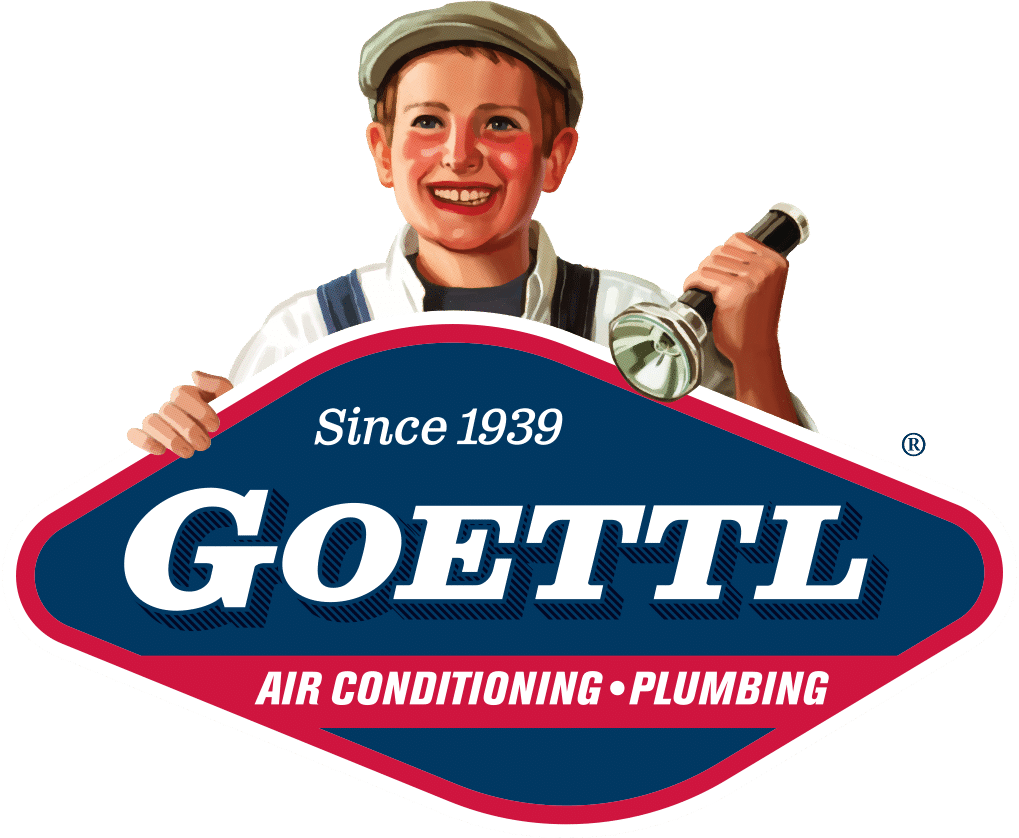
Can I Do My Own AC Repairs?
Attempting do-it-yourself repairs on your AC can be tempting, especially for the more hands-on homeowners. However, it’s crucial to know your limits when it comes to HVAC systems. Working on your AC without professional experience and training can cause further damage and safety hazards.
While you can perform some maintenance tasks to keep your system running smoothly, such as replacing air filters, major repairs should always be left to the experts. Let’s explore why attempting AC repairs is not advisable.
If you’re facing AC issues and need repair services, it’s best to call a professional like Goettl Air Conditioning & Plumbing for assistance.
This article discusses the risks and challenges of attempting DIY repairs on your system, emphasizing the importance of professional expertise and training. It provides insight into why major repairs should be left to HVAC professionals and offers a cautionary perspective on AC repair’s potential dangers and complexities.
Why DIY AC Repair Is Not Recommended
When faced with an air conditioning malfunction, the temptation to tackle the repair yourself might be strong. However, do-it-yourself AC repair is not recommended for several reasons as air conditioners are complex and require specialized knowledge and tools to repair properly.
Attempting to fix your AC unit without the necessary expertise can lead to further damage, safety hazards, and inefficiencies. Here are some main reasons why AC repair is best left to the professionals.
1. Safety Hazards
AC systems involve electricity and moving components, such as fan blades, which can be hazardous to handle without proper training. HVAC technicians undergo safety training to mitigate these risks and ensure safe repairs. Understanding the risks involved highlights the importance of hiring trained HVAC technicians for repairs. Let’s explore these hazards in more detail.
Electrical Hazards
Handling electrical components of an AC system without proper training and tools can be disastrous. High-voltage electricity powers the compressor, fan motor, and other critical components. Incorrect handling can result in electric shocks, burns, or even fires. HVAC technicians are trained to safely work with these components, minimizing the risk of accidents.
Additionally, HVAC technicians are equipped with the tools and personal protective equipment (PPE) to handle electrical components safely. They understand the importance of shutting off power to the system before beginning work and follow strict safety protocols to prevent accidents.
Furthermore, they are trained to diagnose electrical issues accurately, ensuring that repairs are done correctly and safely. Hiring a professional technician can help you avoid potential hazards and keep your home and family safe.
Refrigerant Risks
Air conditioners use refrigerant to cool the air. This refrigerant is a chemical that can be harmful if not handled properly. HVAC technicians are trained to safely handle, recover, and dispose of refrigerant according to environmental regulations. Attempting to work on your AC system without proper training can lead to leaks, releasing harmful chemicals into the environment.
Mechanical Hazards
AC systems have moving parts like fan blades and motors. These parts can cause injuries if not handled correctly. HVAC technicians are trained to safely inspect and repair these components, ensuring they are properly aligned and functioning. Attempting DIY repairs without proper knowledge can result in accidents and injuries.
HVAC technicians also have the expertise to identify worn or damaged components during routine maintenance, preventing potential mechanical failures. They use specialized tools to inspect and adjust fan blades, motors, and other moving parts to ensure they operate smoothly and efficiently.
Additionally, technicians are trained to follow proper safety procedures when working with these components, reducing the risk of accidents. Hiring a professional technician for AC repairs can help you avoid injuries and ensure your system operates safely.
Structural Integrity
AC units are heavy and can be installed in elevated areas such as roofs or attics. Working on these units requires proper safety equipment and training to prevent falls or structural damage. HVAC technicians are equipped with the necessary tools and knowledge to access and work on these units safely, minimizing the risk of accidents.
In addition, HVAC technicians are trained to assess the structural integrity of the installation location before performing any repairs or maintenance. They ensure the mounting brackets and supports are secure and can withstand the unit’s weight. Technicians also inspect the surrounding area for any damage or deterioration that could compromise the unit’s stability.
Technicians are also familiar with safety regulations and guidelines for working at high heights. They use proper fall protection equipment, such as harnesses and lanyards, to prevent accidents. Additionally, technicians are trained to work in confined spaces, such as attics, ensuring they can navigate these areas safely.
Hiring a professional HVAC technician for repairs and maintenance ensures that your AC unit is serviced safely and efficiently, lowering the risk of accidents or damage to your property.
Code Compliance
HVAC units must comply with building codes and regulations to ensure safe operation. HVAC technicians are familiar with these codes and ensure that any repairs or installations meet these requirements. DIY repairs may not adhere to these codes, leading to unsafe conditions and potential legal issues.
2. Risk of Further Damage
Attempting DIY repairs without the necessary knowledge can further damage your AC system. AC systems are complex and require a balance of various parts. Making correct adjustments can keep other parts in sync. Let’s dive into the risks involved in DIY AC repairs.
System Imbalance
AC systems are designed to work harmoniously, each component playing a specific role. Making incorrect adjustments to one part of the system can disrupt this balance, leading to inefficiencies or failures in other components. HVAC technicians can diagnose issues comprehensively, ensuring that any repairs maintain the system’s balance and efficiency.
Component Compatibility
AC systems are made up of various components that work together seamlessly. When one component fails, it can affect the performance of other components. HVAC technicians understand the compatibility of different components and can provide replacements that properly integrate into the system. DIY repairs may result in using incompatible parts, leading to further damage and inefficiencies.
System Calibration
AC systems require precise calibration to operate efficiently. This calibration ensures that components work together optimally to provide the desired cooling. HVAC technicians have the gear and knowledge to calibrate AC systems correctly. Incorrect calibration due to DIY repairs can result in overworking certain components, leading to premature wear and system failure.
Warranty Concerns
Many ACs have warranties that require repairs and maintenance by authorized technicians. You risk making these warranties void if you attempt AC repairs yourself. HVAC technicians are authorized to perform repairs under warranty, ensuring your system remains protected.
Professional Diagnosis
HVAC technicians undergo extensive training to diagnose AC issues accurately. They use specialized tools and methods to identify underlying problems and recommend appropriate solutions. Attempting DIY repairs without a thorough understanding of the system’s operation can result in misdiagnosis and ineffective repairs, leading to further damage and costly repairs.
3. Addressing the Root Cause
HVAC systems are intricate, and problems are often more than surface issues. Professional technicians understand how the system works together and can identify and address the root causes, not just the symptoms. Let’s explore why professionals are better equipped to handle complex HVAC problems.
Comprehensive System Evaluation
HVAC technicians thoroughly evaluate your AC system to identify the root cause of the problem. They inspect all components, including the compressor, condenser, evaporator coil, and refrigerant lines, to address the underlying issue.
Identifying Underlying Issues
Many AC problems have underlying causes that are not immediately apparent. HVAC technicians use diagnostic tools and their expertise to pinpoint these issues and develop a targeted repair plan. DIY repairs may only address the symptoms, leading to recurring problems.
Preventing Future Issues
By addressing the root cause of AC problems, HVAC technicians can help prevent future issues from arising. They use their knowledge of AC systems to make adjustments and repairs that improve overall system performance and longevity.
Professional Repair Techniques
HVAC technicians use professional repair techniques to address the root cause of AC problems. They have the skills and experience to perform complex repairs safely and effectively, ensuring that your system operates efficiently.
System Optimization
In addition to fixing immediate issues, HVAC technicians optimize your AC system for better performance. They may recommend upgrades or adjustments that improve energy efficiency and cooling capacity, addressing the root cause of inefficiencies.
Trust Professionals for Your AC Repairs
While it may be tempting to do the AC repairs yourself, the complexity and potential hazards make it a task that is best left to professionals. You can ensure that your AC system is repaired safely and efficiently by relying on experienced technicians like those at Goettl Air Conditioning & Plumbing. Don’t hesitate to schedule an appointment for AC repair today to keep your home comfortable throughout the year.
Testimonials
What Our Customers Say About Us


He made some recommendations to me but was understanding and not pushy when I declined.
Lorenzo is one of the reasons I will stay with Goettl.










November 2025 - Brandon showed up and did a great job with quickly assisting me with a small issue. Great customer service!
March 2025 - Jesus Gloria came out in an instant to help us out and quickly fixed our problems. Give this man a promotion!
February 2025 - Our unit was working properly with the cold weather, but Michael showed up and had it fixed in no time! He was also nice enough to give my son a stuffed animal and flashlight. Great service.
September 2024 - Johnny Rivera and Billy Solis came by to fix some work for me and did a fantastic job. Give these guys a raise!

Thank you
Bill Rafanan









4-3-23 Jacob came out to take a look and did some tweaks without me even having to say anything. Love these dudes Ken ❤️
4-11-24
I had a concern with water draining all over my back yard which was irregular. When I called Goettl they had someone out in less than 24 hours. Matt and Kayden came out to help determine the issue and within less than 30 minutes determined a copper elbow had to be replaced. They were professional as always and were able to answer my questions and concerns. Another great experience! Thank you Goettl for providing quality care every time!
4-24-25
Freddie stopped by for A/C inspection and cleaning. He was very professional and thorough. Thank you for the great service!
4-25-25
Levi stopped by for our yearly plumbing inspection. He answered all my questions and helped determine other options with a concern we had with one of the pipes busting on our flat roof. We spent a lot of money getting our house new equipment with Goettl and with any major changes there can be hickups, but every step of the way Goettl has offered reasonable resolutions and takes ownership of making things right. Thank you for your dedication to doing things right
1-15-26 Frank did great today. Servicing our heater unit. He was friendly and insightful and thorough. Couldn't have asked for a better tech! Ty Frank 😊





Nov 05 2025: Seasonal maintanence checkup and this go around I got Adam. Not one bit less experienced. I was given heads up of his arrive. He came, performed his maintenence inside and out and at the end provide his assessment alone with photos. Goettl techs don't come in and leave in 15 minutes, they are through in what they do. Great job Adam.
Nov 22 2024: Seasonal maintanence check and I once again was fortunate to get Jacobi again. He is a well thorough service tech. Everything went smooth and he explained what he saw and did. A+++++
Mar 25 2024: My service tech's name is Jacobi. He is a very knowledable individual. He mentioned he does maintenance and installation. I was due a routine maintenance but for this call my furance wasn't turning on. He diagnosed and explained it was the blower. Very pleased with his work.
Aug 27 2020: Jeremy did a great job.Called when he was heading over. Cleaned out the dripping pan and cleaned out the drain pipe. Wore his mask while he was inside my house.
Great, fast service even on July 4 2018. Tony was my service tech. He diagnosed and got me up and running ASAP.

Thank you for your excellent service Ivan!







Devin performed my plumbing inspection. He is knowledgeable and courteous.


What truly stood out was his attention to safety. He identified a carbon monoxide concern in our home and made sure we understood how serious and dangerous it could be. José explained the risks in a calm, respectful way and ensured we knew what steps to take to keep our family safe.
His professionalism, knowledge, and genuine care went above and beyond. We are incredibly grateful for his honesty and dedication, and we highly recommend José Carreon to anyone needing HVAC service.
Thank you , Goettl for hiring the best technicians!






















Jesus was terrific, thorough, and personable. Made everything so easy for me.
I just had my second yearly inspection with Francesco Tocci. I cannot say enough good things about him. He is prompt, professional, personable, and takes the time to explain his findings to me and what he will do about them. Now, in fairness, all of the technicians from Goettl are great. But Francesco stands out because of his gregariousness. It is obvious that he loves his work and truly cares that his clients are happy with the job he does.





We installed a new AC unit...we got a best price...and the same day day they show up, and 9 hours later...the new ac was on working. Well we have had scheduled an appointment for today for AC mentanance....the technician Kevin Schroeder show up on time...he was very professional, very knowledgeable...polite..and permanently he try to assure us about everything . Such a great person, and a joy to be in our house . Strongly recommend Goettl company, and it's a pleasure to recommend this technician ! Great job Kevin 👏






I initially had a rocky start with one particular representative, but the Goettl team stepped up and made it right, which says a lot about their integrity as a company. Billy did an outstanding job and made sure my system was safe, fully operational, and gave me real peace of mind.
Thank you to management, Josh and Josue, for personally ensuring the job was completed to my satisfaction.




What stood out the most was their attention to detail and genuine care for customer satisfaction. They took the time to assess my system thoroughly, offered honest recommendations, and completed the work efficiently without cutting corners. My home is now noticeably more comfortable, and I feel confident knowing everything was handled by true professionals.
If you’re looking for reliable, top-quality HVAC service, I highly recommend Goettl. They truly live up to their reputation and exceeded my expectations in every way. Thank you Jose Carreon



Nick, Julian, and Josh were at my home for four days. They did a meticulous job, cleaning up every day with no debris left. They were responsive to my questions and took pride in their work. They explained the work to be done in great detail.
The work team was terrific, and I would have no hesitation in using them again or recommending them.


Did a great job. Answered all of my questions and showed me how to take care of my equipment. They talked to me not at me. Thank you both of you.
Patty 🤗🌷🌵









Update on 1/10: Ashton was very helpful and informative. He did a good job and gave good communication!


Ashton was a great tech. Jumped right into the maintenance check ensuring our systems were up and running as should be. Following his tune up and inspection, Ashton thoroughly went over all his findings before cleaning up.
Nate is a fantastic Goettl tech. Came out to fix one problem but quickly realized the diagnosis was not correct. Stayed at our house, relentlessly working to figure out the issue all while in a house with no A/C, registering indoor well above 90. Thanks to Nate, David and Goettle for getting us back up and running and taking care of us and making the invoice total right. Great customer service in this experience.
12/21/24
Jeremy was fantastic. They were able to get us in earlier than scheduled. He remembered the house and was able to due the maintenance tune up and test the system in no time. Great experience.
12/26/24
Francesco is a top notch plumber. On time and got right to work. Did all his inspections and was in and out in no time. Stuck around after his inspection to talk about what he found and made some minor recommendations. Awesome experience.














Julian and his team (Joey, Jeran, and Alonso) are extremely knowledgeable, efficient, and worked hard to get us back up and running as quickly as possible. Upon completion they send a detailed email with pictures.



Thank you!




I am very satisfied with my Goettle services, their employees, including the scheduling staff, and highly recommend this company.

Goettl plumbing supervisor, Craig Cooper, arrived to survey the problem. Craig determined the valve had been incorrectly installed during the previous water system installation. Craig immediately contacted water mitigation supsrvisor, Ethan Gray at Quick Restore LLC.
Craig coordinated with Ethan the construction, drying of walls/carpet and services for the boxing and storage of our personal property. The reconstruction and repair work was done professionally and in an outstanding time frame for me to undergo major spinal surgery.
I wish to thank Craig for his outstanding integtity and attention to detail for this undertaking. He arranged for Goettl to cover all the costs involved for the work, boxing, moving, storage and water mitigation.
We are so very grateful to Goettl for their wonderful work ethic, technicians and supervisors. We absolutely continue to use and wholeheartedly endorse Goettl for all our AC and plumbing services! Thank, you again Craig!




Parker was very pleasant, knowledgeable and respectful of us and our home.
You’ll be in good hands with Parker and Goettl











A short history. A few years ago, we had four seasons put in a new furnace. After checking around and getting tons of estimates, there was as much as a $10,000 difference between all of the estimates. Four seasons came in at the best price. Unfortunately, I ordered an 80,000 BTU furnace and when the guy was done, I looked at the furnace and saw that it was a 60,000 BTU. I showed the guy the invoice and basically his response was ‘ Oh crap’ so I talk to the manager and he assured me that 60,000 BTU would heat my home sufficiently since it was a high-efficiency unit.
I was ready to have them tear it out and put the right one in, when the manager guaranteed the furnace and gave me the price for the 60 KBTU with a substantial discount. I did the regular maintenance and service service with four seasons.
When Goettl took over, I’m not sure if they just change the name, or bought four seasons, but everything changed after that. First I was informed of a membership called Sadie which is basically a yearly/monthly fee that allows us to get a lot of benefits. Free service calls, free, free preventative maintenance and discounts on non-covered items.
The first thing that I noticed was Josh came in to do a service, check the pressure and saw that the original installation guy did not convert my furnace to propane. Apparently none of the other service people ever checked the pressure. He had to return with the correct parts and changed out the valve. He also helped me out with a bathroom heating duct that was ripped. The price was great and he said he felt bad that we had such issues with the previous company.
A few months later (last Saturday) we stopped getting heat. I called Goettl let them know, and they were at my house within two hours. When it’s freezing outside or going to be subzero it’s really important when they respond so quickly.
Chris was the technician and he found the problem, however, the plumbing supply company was not open till Monday morning. Two days with sub, freezing temperatures scaring me a bit. Chris said that he would check with Dispatch and see if they had a couple of space heaters. When he was leaving, he noticed we had a bunch of firewood on the front and he offered to help bring firewood in. I told him no problem we had it, he said he was happy to help us. Make sure we had enough firewood to get through two days.
These two offers, were above and beyond in something you really wouldn’t expect from your HVAC people. Unfortunately, they didn’t have any space heaters at Dispatch, so we went to Home Depot and got some radiator heaters and then yes 24 hours a day kept a fire going.
Chris showed up Monday about 11 AM with the parts and it took him about 2 1/2 to 3 hours to fix all of the problems. I’m not savvy with all of the HVAC terms, but something about condensate water bill backed up through the system blah blah blah… we now have heat. lol.
Getting the Sadie member membership/club was the best thing we decided to do. They call us regularly to schedule our summer and winter maintenance. They are responsive. And they are very polite every time I call them.
I really would recommend you contacting them and get on that membership before you actually need them. Thank you, Josh and chris and unfortunately, I cannot remember the name of the female technician that came out and changed our filters but she was awesome also!






Like most people, I typically search for the cheapest service I can find, and I end up having other plumbers come out to check out issues with my tankless water heater, who run their mouths, upsell parts (that don't seem to be causing the problem), and generally don't really know enough about tankless water heaters. This time, I decided to go with an experienced company with a good reputation, and I am glad that I did - Goettl's prices are very reasonable and worth the service they provide.
Juan, was very knowledgeable, patient, and persistent. Even better, he was careful and humble enough to acknowledge that he didn't know everything and checked with the manufacturer at every step. Juan spent a great deal of time helping me diagnose the problem (which always seems impossible to ascertain quickly with machines like tankless water heaters), and went above and beyond to ensure that my guests and I had hot water tonight.
Juan never got frustrated; he handled everything carefully and made sure to clean up after himself when he was done. If I can have Juan take care of all of my plumbing or AC issues in the future, I will. And if you're reading reviews to decide whether to call Goettl for your issue, I would encourage you to trust their service and experience. My experience with Juan was definitely memorable.
We now have hot water again. Can I get a "hell yeah"?


We had a concerning plumbing issue, and Geo was able to diagnose the problem with impressive speed and accuracy. What I really appreciated was that he took the time to clearly explain what was wrong, showed me what he was looking at, and gave me honest, practical advice on the best solution.
He had the issue resolved in no time at all. The whole experience was seamless, from the quick scheduling to the efficient and high-quality work. It’s so refreshing to find a technician who is not only a master of his craft but also a genuinely kind and trustworthy person.
A huge thank you to Geo and the entire team at Goettl. You have a customer for life! If you need a plumber, ask for Geo—you’ll be in the best hands






I have seen Goettl vans all over town and so I called them.
Got appointment right away and the Technician, Jef Eusepi, took care of our problem.









Thank you,
Greg Sanches





















This past week our service technician was Andrew Morgan and he is such a friendly, knowledgeable, and skilled technician. He spent time making sure the job was done correctly and he explained it in terms that I could understand. Not only is our unit functioning even better than before, I also gained knowledge of how the system works.











I highly recommend Goettl as this is the second time l've used them in less than a year. (2 seperate issues)... and I highly recommend them..anytime and anyday.
They have exceeded to top any expectations I could have ever had with any company.






The company is installing a tankless heater and the customer service is outstanding.
I recommend Geottl to all!


They made sure my carpet was covered and when they were all through they cleaned up perfectly
I would recommend your company to anyone looking to put in a new air conditioner.
Thank you so much for all you did for me.
Sincerely, June Jones

And I would highly recommend the company and the quality technicians like Jarod.
Jarod is the go to if you want excellent
Customer service and communication for any AC related issues. He is very knowledgeable, personable and trustworthy. I am grateful and satisfied.




They listened to my issue, were very through, checked for leaks, etc. I’ve lived in Lakeway for 30 years, used MANY local plumbers - but Goettl will definitely get all my business moving forward. HIGHLY recommend!
Ty, Wil & Adrian!
